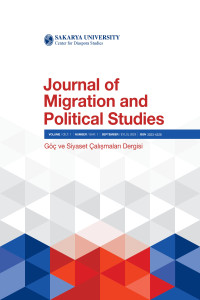The publication policy of the Journal of Migration and Political Studies (MIPOS) is based on the improvement and dissemination of information in an impartial and respectful manner. The processes applied in line with this policy directly affect the quality of the studies submitted by authors and affiliated institutions. Peer-reviewed studies support and materialize the scientific method. Therefore, all the parties taking part in the process (authors, readers, researchers, publishers, reviewers, editors) should comply with the ethical principles.
Journal of Migration and Political Studies expects all its parties to take on the following ethical responsibilities as part of the publication ethics.
The ethical duties and responsibilities listed below are based on the guidelines and policies published as open access by the Committee on Publication Ethics (COPE).
The publication of an article in a peer-reviewed journal is essential for the development of a coherent and respected knowledge network. Peer-reviewed articles support and develop scientific methods. Therefore, it is important for all relevant parties involved in the publishing process, including authors, journal editors, reviewers, and publishing agencies, to agree on the expected ethical behaviors and standards.
1. Ethical Principles
1. Authorship of the Paper:
Authorship should be limited to those who have made a significant contribution to the conception, design, execution, or interpretation of the reported study. All those who have made significant contributions should be listed as co-authors. Where there are others who have participated in certain substantive aspects of the research project, they should be acknowledged or listed as contributors. The corresponding author should ensure that all appropriate co-authors and no inappropriate co-authors are included in the paper and that all co-authors have seen and approved the final version of the paper and have agreed to its submission for publication.
2. Conflicts of Interest:
Authors: All authors should disclose in their manuscript any financial or other substantive conflict of interest that might be construed to influence the results or interpretation of their manuscript. All sources of financial support for the project should be disclosed.
Reviewers: Referees should inform the journal editor about the evaluation process if they suspect any conflict of interest in the article they are evaluating, and refuse article evaluation if necessary. In order to prevent conflict of interest, people in the institutions where the article authors are working cannot referee the article.
Editors: Editors should not have personal or financial conflicts of interest with articles.
3. Data Access and Retention:
Authors are asked to provide the raw data in connection with a paper for editorial review, and should be prepared to provide public access to such data, if practicable, and should in any event be prepared to retain such data for a reasonable time after publication.
4. Data Fabrication and Falsification:
Fabrication and/or falsified experimental results, including the manipulation of images.
5. Duplicate / Multiple Submission(s):
Manuscripts that are either found to have been submitted elsewhere or published elsewhere. If authors have used their own work, either previously submitted or published, as the basis for a submitted manuscript, they are required to cite the previous work. They also need to indicate how novel contributions are offered in their submitted manuscript, over and above those of the previous work.
6. Intellectual Property
• Authors certify that their submitted manuscript (and any supporting items) are their own intellectual property and the copyright has not been transferred to others.
• Authors certify that the manuscript contains no plagiarism, no fabrication, no falsification, no manipulated citations and that the manuscript conforms to JSS authorship policies.
• All manuscripts, revisions, drafts, and galleys remain the intellectual property of the author(s). Except as stated in the agreed license, the author(s) retain the copyright to their work.
• All review comments and reports remain the intellectual property of the reviewer or editor. Except as stated in the agreed license, the author(s) retain the copyright to their work.
• Authors, reviewers, and editors agree to keep all communications, comments, or reports from reviewers or editors confidential.
• Reviewers and editors agree to keep all manuscripts, revisions, and drafts confidential, with the exception of the final published galley(s).
7. Correction, Retraction, Expression of Concern
• Editors may make corrections if they detect minor errors in the published article that do not affect the findings, interpretations, or results.
• Editors may retract the article in case of major errors/violations that invalidate the findings and results.
• Editors may issue a statement of concern if there is a possibility of abusive research or publication by the authors, if there is evidence that the findings are unreliable and the authors' institutions have not investigated the incident, or if the potential investigation seems unfair or inconclusive. COPE and ICJME guidelines are taken into account with regard to the correction, retraction, and expression of concern.
8. Publication of Studies Based on Surveys and Interviews
Aiming to establish ethical assurance in scientific periodicals, MIPOS journal adopts the principles of the "Code of Conduct and Best Practice Guidelines for Journal Editors" and the "Code of Conduct for Journal Publishers" published by the Committee on Publication Ethics (COPE). In this scope, the following aspects should be adhered in the studies submitted to the journal:
• Ethics committee approval should be obtained for research conducted in all the disciplines that require ethics committee approval, and this approval should be stated and documented in the article.
• In studies that require ethics committee approval, information about the approval (committee name, date and issue number) may be included in the method section of the study. However, in case reports, information about the informed consent and the signed consent form should be included in the Article Information Form at the end of the article.
The studies that require ethics committee approval are as follows:
• All kinds of research conducted with qualitative or quantitative approaches that require data collection from participants through surveys, interviews, focus group works, observations, experiments and other interview techniques.
• Use of humans and animals (including material/data) for experimental or other scientific purposes,
• Clinical studies conducted on humans,
• Studies conducted on animals,
• Retrospective studies in accordance with the law on the protection of personal data,
Also;
• A statement confirming that an "informed consent form" has been received in case reports,
• Obtaining permission from the owners for the use of scales, surveys or photographs belonging to others,
• A statement confirming that copyright regulations are met for the intellectual and artistic works used.
9. Policy of Publishing Additional or Special Issues
A special issue can be published in our journal once a year upon the request of the Editorial Board. The publication processes of the articles sent to be included in the special issue are the same as the standard processes.
1. Additional or Special issue: An issue published in addition to the regular issues of a periodically published journal. It may consist of conference papers or a series of articles focusing on a specific topic.
2. Page numbering in the additional or special issue is different from the regular issues.
3. The print run of the additional or special issue cannot be more than one third of the regular issue. The special issues containing conference paper abstracts are not included in this scope.
4. Ratios of case reports, compilations and research articles (excluding conference paper abstracts) published in the additional or special issue will be included in the ratios of articles published in other issues.
5. The issues published as a tribute are not accepted as an additional or special issue. Their page numbering and organization are the same as the regular issues.
Other ethical violations include:
a) Not specifying the supporting individuals, institutions or organizations and their contributions in the publications made as a result of research conducted with support.
b) Using theses or studies that have not yet been submitted or have not been accepted as a source without the permission of the owner,
c) Not complying with ethical rules in research on humans and animals, not respecting patients' rights in publications,
ç) Violating the provisions of the relevant legislation in biomedical research and other clinical research related to humans,
d) Sharing the information in a work that has been assigned for review with others before it is published without the explicit consent of the author,
e) Misusing resources, spaces, facilities and equipment provided or allocated for scientific research,
f) Deliberately making a false and ungrounded allegation about ethical violation,
g) Publishing the data obtained from surveys conducted as part of a scientific study without the explicit consent of the participants, or without the permission of the relevant institution if the study is conducted in an institution,
h) Harming animal health and ecological balance in research and experiments,
ı) Failing to obtain written permissions from authorities that are required for starting research activities or experiments,
i) Conducting research activities or experiments in violation of the related legislation or the provisions on research and experiments in the international conventions to which Türkiye is a party,
j) Disregarding the obligation to inform and warn the relevant authorities about possible harmful practices related to the scientific research.
k) Not using the data and information obtained from other individuals or institutions in scientific studies to the extent and as permitted, not respecting the confidentiality of this information and not ensuring its protection,
l) Making false or misleading statements regarding scientific research and publications in academic appointments and promotions.
Ethical Guidelines for Authors
• Studies must be original and based on research.
• It must be ensured that all the persons mentioned as authors/co-authors have contributed to the article. It is against scientific ethics to show persons who have not made any academic contribution as additional authors or to rank the authors by non-scientific criteria such as title, age and gender, regardless of the order of contribution.
• In the articles with multiple authors, it should be clearly stated to what extent the authors have contributed to which stage of the article.
• The article should not be sent to different journals at the same time and should not have been sent to another journal before. If it is found to have been sent to another journal, the publication process will be cancelled.
• It is assumed that the authors who submit articles to the journal have read and accepted the publication and writing principles of the journal, and the authors are deemed to have committed to these principles.
• The citations and bibliography should be complete.
• Plagiarism and fake data should be avoided.
• Authors should not resubmit the same studies previously rejected in our journal. In such a case, the studies will be rejected.
• The similarity rate obtained as a result of the similarity checks should not exceed 20% in order to initiate the peer review process.
• An article may be included in a maximum of 2 PRE-REVIEW processes. The article will be rejected if the feedback conveyed to the author is not revised.
• The corresponding author must inform the journal editor in case of any conflict of interest.
In this scope, WAME can be referred:
https://www.wame.org/conflict-of-interest-in-peer-reviewed-medical-journals
Ethical Guidelines for Peer Reviewers
• Peer reviewers should be aware that they play a critical role in the academic quality of the article to be published in the journal, and they should engage in the peer review process with the responsibility of improving academic quality.
• Peer reviewers should only accept to review articles for which they have the expertise to make an appropriate assessment. They should also respect the confidentiality of the blind peer review process and keep the details of the article confidential at all costs.
• After the review process, any information about the reviewed article should not be shared with others under any circumstances.
• Peer reviewers should only evaluate the accuracy of the content of the articles and their compliance with academic criteria. Any difference of opinions between the article's argument and the peer reviewer should not affect the review process.
• Peer review reports should be objective and measurable. Libelous, derogatory or accusatory expressions should definitely be avoided.
• Peer reviewers should avoid superficial or inaccurate statements in their peer review reports. In reviews with negative results, a complete justification should be presented on the aspects that led to the negative result.
• Peer reviewers should review the articles within the time period allotted to them. If they are not going to review the article, they should notify the journal within a reasonable time.
Ethical Guidelines for Editors
• Editors should accept articles that will contribute to the relevant areas specified in the journal policy.
• Editors should not have any conflict of interest with accepted or rejected articles.
• Editors have full responsibility and authority to accept or reject an article.
• It is editors' responsibility to keep the names of peer reviewers and authors mutually confidential.
• Only the articles that will contribute to the relevant field should be accepted.
• If an error is detected, editors should support the correction or retraction of the error.
• It is the duty of editors to complete the pre-review, peer review, editing and publishing processes of the articles submitted to the journal in a timely and appropriate manner.
• Editors should not assign people who do not contribute to the journal as editorial board members or associate editors.
2. Publication Policy
Any manuscript that is considered to be published in MIPOS must meet the following criteria:
• Originality
• Not containing ethical violations
• Having clear messages for the scientific community
• Expressing the extent of the article's contributions to researchers in the field and its relevance to social sciences
• Current fields and topics drawing the interest of researchers in the field of social sciences
• Having structural and logical integrity
• Research results that are based on scientific evidence
• Coherence of the scientific method
Review of the Articles
Articles can be submitted to the MIPOS by registering in the "Article Management System" on https://dergipark.org.tr/en/journal/4057/submission/step/manuscript/new. Articles sent by e-mail will not be taken into consideration.
Pre-Review and Plagiarism Checking
The journal's compliance with the writing rules is examined and a similarity check is made to prevent plagiarism. A similarity software is used in the checking process. The overall similarity rate should be less than 20% and the similarity rate from a single source should be maximum 3%. If the similarity rate is more than 20%, the study is either rejected or sent back to the author to reduce the similarity rate. The pre-review is completed within a maximum of 5 days.
Editor/Field Editor Review
After the study passes the stages of pre-review and similarity checking, it is reviewed by the relevant editor/field editor in terms of subject, scope, language use and academic competence. This review is completed within a maximum of 5 days.
Peer Review Process (Double-Blind Peer Review)
Studies that pass the pre-review and editorial review undergo a confidential double-blind peer review process. Within the double-blind strategy, the identity of the peer reviewer is concealed from the author submitting publications to the journal. Similarly, the peer reviewers do not know who wrote the article they are reviewing. In other words, the peer review process is conducted by keeping both authors and peer reviewers anonymous to each other. The reports are also stored in the Article Management System.
Author's Revision
Authors take into account the feedback, criticisms and recommendations of the reviewer and the Editorial Board. In case of any disagreement, they have the right to appeal with their justifications. Authors edit the article as per the reports and upload the final version of the article to the system.
Field Editor Review
The field editor checks whether the author has made the requested corrections in the text. If there is a “Major Revision” requirement in the peer review reports, they send the article to the relevant peer reviewer. If there is "Acceptance" or "Minor Revision" requirement and the revisions are completed, they can submit the article for language checks (The checking process is completed within a maximum of 7 days.). If they detect that the corrections have not been made, they re-send the article to the author. They may reject the article if the author does not make the corrections again. Articles that are not accepted for publication are not deleted from the system. Their processes and files are stored in the system.
Turkish Language Checks
Studies that pass the peer-review process are examined by the Turkish Language Editor and if necessary, corrections are requested from the author. The checking process is completed within a maximum of 15 days.
English Language Checks
Studies that pass the Turkish language control are reviewed by the English Language Editor and if necessary, corrections are requested from the author. The checking process is completed within a maximum of 15 days.
Editorial Board Review
The articles that pass technical, academic and linguistic reviews are examined by the Editorial Board and the final publication status is determined. In case of any objection from the members, the Board decides by majority of votes.
Typesetting and Layout Process
The journal undertakes the typesetting and layout processes of the studies decided to be published by the Editorial Board.
Language
MIPOS publishes articles written in Turkish and English. Turkish language articles should also include English abstracts. Turkish abstracts are not required in English language articles. If the article is written in a language other than English, an extended English summary should be added after the bibliography. The extended summary should be in line with the rules of writing applied in the article and should not be more than 750 words.
Change of Authorship
MIPOS accepts article authors according to the statement on the Title Page of the article. Therefore, it is the responsibility of authors to submit the final version of the full author list. Requests for any change of authorship after the submission of the article (e.g removal/addition of authors, change of order, etc.) are subject to editorial approval. The Editorial Board will investigate such cases and act according to the COPE flowcharts.
Requests for a change of authorship should be conveyed to the Editor with an official letter stating the reasons for the change. The letter should be signed by all the authors and include their confirmation of the change of authorship. If the request is approved by the Editorial Board, the authors are required to submit a new Copyright Agreement Form according to the final author list.
Objections and Appeals
The Editorial Board of the journal deals with objections and appeals within the scope of COPE guidelines. Authors can contact the Editorial Office directly for their objections and appeals. When needed, an impartial representative will be appointed for issues that cannot be resolved by the Editorial Board. The Editor-in-Chief will make the final decision in the decision-making processes regarding objections and appeals.
2.1.13. Disclaimer
The opinions expressed in the articles published in the journal are those of the author(s). They do not purport to reflect the opinions or views of the MIPOS and its Editor-In-Chief, Editors, Editorial Board or Publisher. The Editor-in-Chief, Editors, Editorial Board and Publisher assume no responsibility or liability for such cases. The sole responsibility for the published content lies with the authors.
The average time during which the preliminary assessment of manuscripts is conducted: 5
The average time during which the reviews of manuscripts are conducted: 60
The average time in which the article is published: 90




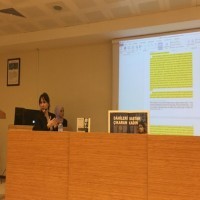


 Web
Web




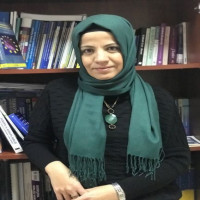

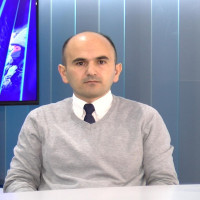





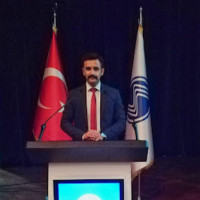

Content of this journal is licensed under a Creative Commons Attribution-Non Commercial 4.0 International License.






